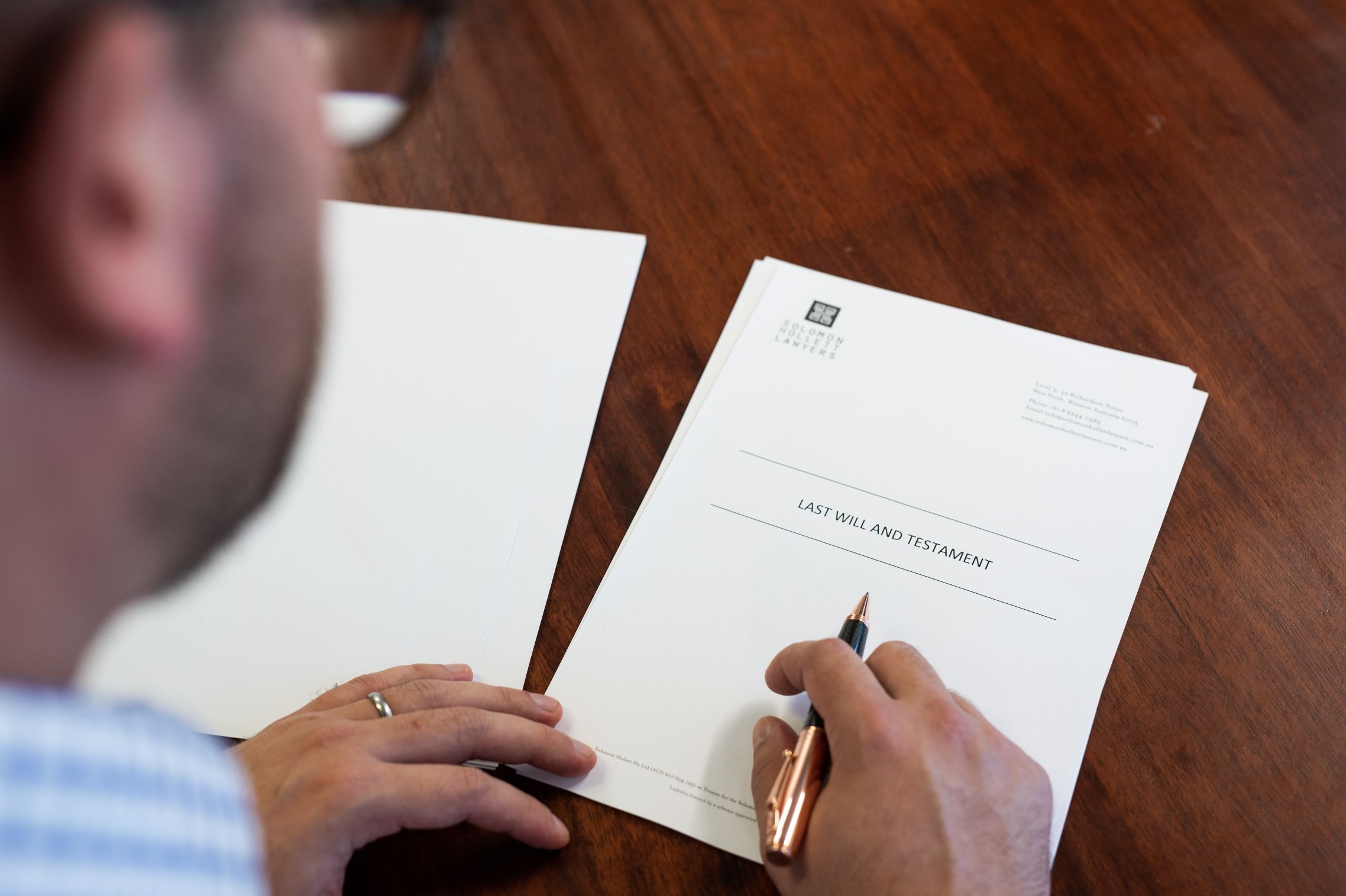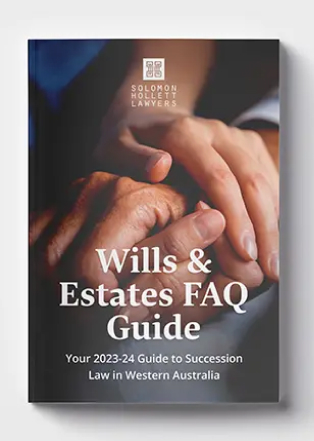Contesting a Will is a complex and often emotionally charged process – and the process is often undertaken during difficult times. It’s a decision that requires careful consideration, grounded in a clear understanding of legal principles and procedural steps.
We aim to demystify the process and provide essential insights into how to contest a Will and what the process involves. While this information serves as a starting point, the intricacies of inheritance disputes and estate litigation highlight the importance of seeking professional legal advice.
Understanding Wills and estate planning
At the heart of every estate plan is a Will. A legal document that outlines how a person’s assets and belongings should be distributed after their passing, a Will ensures that the deceased person’s wishes for the allocation of their estate are heard and respected.
Estate planning covers a broader range of considerations. It’s not just about distributing assets – it’s also about planning for future needs and unforeseen circumstances. This includes appointing powers of attorney, making advance health directives, and setting up trusts, among other things. It’s a way to achieve peace of mind for you and your loved ones, knowing that your financial and personal affairs are in order, no matter what the future holds.
The number of Will challenges is on the rise
The number of challenges to Wills is on the sharp rise and estate disputes are common. We put this down to a number of factors:
- Australian family structures and dynamics are simply far more complex these days coupled with the increased and more complex asset pools, including trusts;
- Current generations are far wealthier and there is more at stake, with an estimated $4.3 trillion of assets passing from the outgoing generation down the line right now in Australia;
- Lack of preparation – many families do not have up-to-date Wills or estate planning documents in place meaning the documents don’t reflect the current landscape of the family, and challenges become inevitable; and
- Poor quality of the documents – some Wills are drafted poorly by generalist lawyers not well versed in succession law, some are hopeless newsagent Wills and DIY jobs that make no sense, some are just capricious and designed to cause hurt and harm to family members. These sorts of Wills are ripe for challenge, and harder to defend by family members who might benefit from them.
Challenging a Will has a very high likelihood of success – recent Australian research shows that when a challenge is made, more than three-quarters of them result in a change to the way the Will was originally set out to divide assets.
We often see clients who have been completely excluded for lifestyle reasons, due to fights that may have happened many years ago, issues surrounding de facto relationships, step-children, dependent grandchildren, second marriage considerations, unequal gifts to children during life and business asset distributions.
Read more about how to avoid an estate dispute.
Grounds for contesting a Will
Contesting a Will has a number of names: challenging a Will, estate litigation, making a claim under the Family Provision Act, an inheritance claim or a Testator’s Family Maintenance claim. There are many types of Will challenges, including challenging the validity of Wills (e.g. when a Will is a forgery or made by a person who did not have mental capacity), but the most common challenge we see in Western Australia is the Family Provision claim.
To contest a Will, you need to have a solid legal basis to proceed. Grounds might include the following.
- Lack of testamentary capacity: The deceased lacked the mental capacity to understand their estate, the Will’s implications, or the beneficiaries’ claims, possibly due to mental illness, dementia, or the influence of substances.
- Undue influence or coercion: If the Will was made under pressure, manipulation, or coercion from another party, affecting the deceased’s free will.
- Fraud or forgery: The Will is found to be not genuine, altered without consent, or if the signature was forged, affecting its validity.
- Improper execution: If the Will wasn’t signed or witnessed according to legal requirements, bringing its legality into question.
- Lack of provision for dependents: The Will fails to provide adequately for certain protected individuals like spouses, minor children, or family members dependent on the deceased.
Are you defending a Will challenge? Read more about the process.
Who can contest a Will?
Legally, only certain individuals with a direct connection to the deceased or the deceased’s estate can challenge a Will.
- Immediate family members including spouses, children, and sometimes parents.
- Dependents who are financially reliant on the deceased, like stepchildren or a former spouse.
- Beneficiaries of previous Wills: If someone was named in an earlier Will but left out of the final version.
Who pays to contest a Will? Find out!
The process to contest a Will
When it comes time to challenge or defend a Will challenge, we know that it can be daunting. Understanding the process is the first step.
Step 1: Initial considerations
Getting legal guidance is crucial. Your estate litigation lawyer will carry out a detailed evaluation of your situation. This will help to determine the validity of your claim, based on the grounds for contesting a Will.
An experienced lawyer can provide invaluable insight into the strengths and weaknesses of your case, helping you understand your legal standing and the potential outcome.
It is vital to remember that there are strict time period limits in place to make some forms of challenge, and this is a key aspect of our initial discussion.
Step 2: Gather evidence and develop strategy
If it’s determined that you have a viable claim, the next step is to gather compelling evidence to support your case. This might include medical records and doctor’s statements (to prove lack of testamentary capacity), witness statements (to evidence undue influence or coercion), comparisons of the disputed Will to previous Wills (to highlight discrepancies or sudden changes in the distribution of assets), or evidence of your financial need (to support a Family Provision claim).
Often, clients can be blocked from seeing the actual Will by the executor/s of the estate, which is why having a trusted legal team on your side is so crucial. We work out the strengths of a claim and the key basis to underpin it. We also examine the financial landscape of the beneficiaries and potential beneficiaries and the overall value of the estate.
During this stage, we outline the expected timeline, legal costs, essential strategy and anticipated outcome.
Step 3: Filing a claim
With the necessary evidence in hand, the next step is to formally lodge a claim against the estate. This involves preparing and submitting legal documents to the court within certain statutory time limits, which vary by jurisdiction and the type of claim. Missing these deadlines can jeopardise your ability to contest the Will, meaning timely legal advice and action is essential.
Step 4: Court proceedings
If early negotiations do not result in settlement, we file a claim in the Supreme Court. This requires an originating process (which may be a Writ of Summons, or an Originating Summons supported by an affidavit, depending on the type of claim), setting out the evidence that the claimant relies on to establish their claim.
All beneficiaries whose inheritance could be impacted by the claim, are added to the case as co-defendants. At this point, the affidavit focuses sharply on the main points of the claim to speed up the process and keep costs low.
The court prefers to see if the parties can settle early on, encouraging lawyers to work together on a plan that sends the case to mediation quickly – ideally before the defendants respond formally.
Step 5: Mediation and settlement
This will occur within the Court itself, facilitated and overseen by a Supreme Court Registrar trained in mediation. This is where the parties involved attempt to reach a mutually agreeable resolution with the help of a neutral party. It can offer a less adversarial, more cost-effective means of settling disputes and is generally encouraged by courts as a way to resolve issues without the need for trial.
Mediation has a high success rate, with most claims resolved at this point. Clients will look to save relationships, time, money, and stress – all of which will be present at a formal trial.
We have a host of strategies and tools we can employ here to negotiate and enter into civilised dialogue to look to negotiate a fair outcome before any Court proceedings need to begin.
Take early advice on your position. Take advantage of our free 15 minute consultation – during this time we can work out the basics of whether you have a genuine claim, your prospects of success and start to get a feel for the sort of strategy you will need going forward. We can also work out if you are defending a claim what sort of defence is best for you against the challenger. It is vital to remember that there are strict time period limits in place to make some forms of challenge, and this is a key aspect of our initial discussion.
Learn more about the benefits of Alternative Dispute Resolution (ADR).
Step 6: Trial
Whilst only a very small proportion of matters make this far, some trials are inevitable, especially in complex disputes with many millions of dollars at stake. Court hearings can vary greatly in length, from a single day to several weeks, and require months of preparation. They often involve numerous witnesses and extensive evidence, particularly for complex issues like financial contributions to properties or determining if someone was a de facto spouse.
Once a trial is finished, the judge will make their decision and hand it down in writing. Appeals can occur post this stage but are quite rare. Where a matter is particularly unique it may need an appeal, which is whether the matter is taken up to other judges in the Supreme Court – not a fresh trial, more a hearing on a point of law or mistake of fact that is deemed worthy of review.
Step 7: Late-stage settlement
Of course, settlements can occur at any time during any part of the process without getting all the way to trial, and our aim will always be to get you to settlement as quickly and painlessly as possible.
Navigate contesting a Will with confidence
Contesting or challenging a Will is a complex process that involves navigating various legal steps and strategies. As the number of Will disputes continues to rise, it’s crucial to have expert legal advice on your side. Whether you are contesting a Will or defending against a challenge, our experienced team can guide you through each stage of the process, from initial consultations to mediation or even trial if necessary.
At the heart of our approach is a commitment to pursuing the most efficient and beneficial resolution for our clients, ensuring that assets are distributed fairly and according to the testator’s true intentions. If you find yourself facing a potential Will challenge or need to contest a Will, don’t hesitate to reach out to our estate litigation lawyers for assistance.









